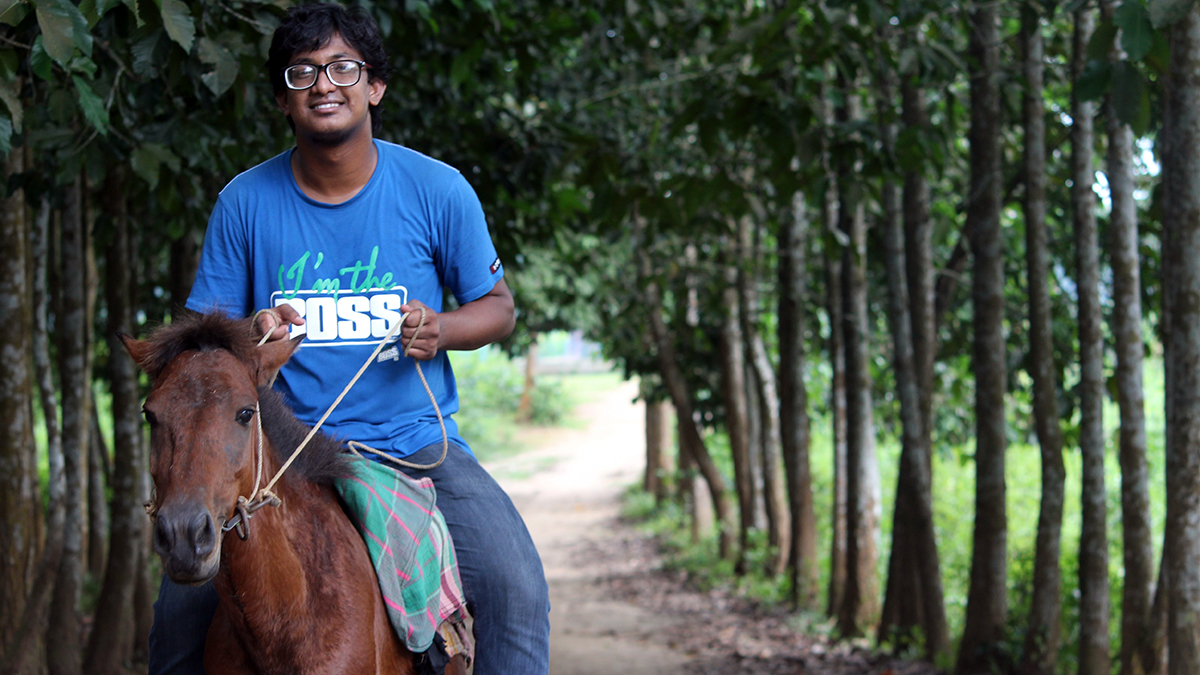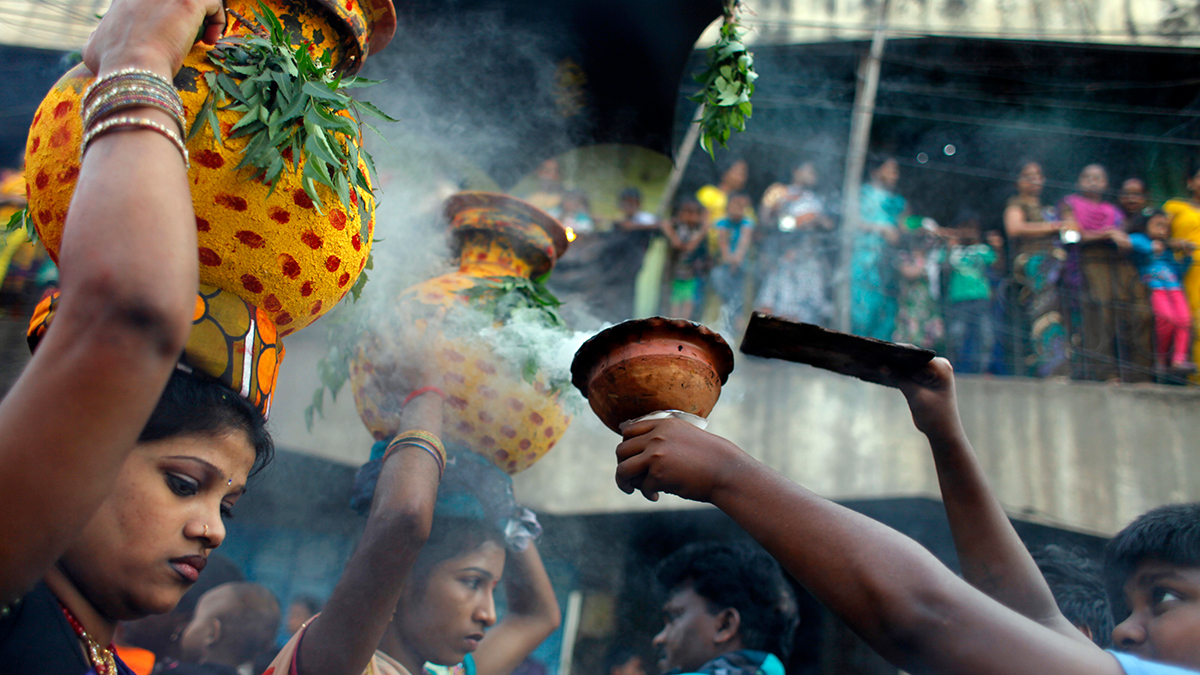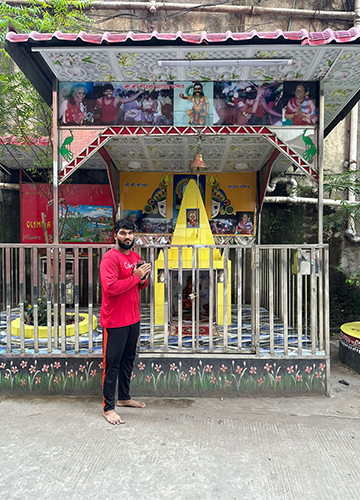Every year, Dhaka resident Trinath Baurusetty retraces the steps his forefathers took nearly two centuries ago. The 27-year-old embarks on a journey to India from the Bangladesh capital. After crossing the international border into West Bengal, he takes a train from Kolkata to Visakhapatnam. His destination is Etikoppaka village, renowned globally for its traditional toys. The village holds a geographical indication (GI) tag for its handicrafts. For Baurusetty, the place connects him to his Telugu roots.
“From a very young age, I was curious about my identity. I asked myself many questions about who I was. This quest has led me to make regular trips to Andhra Pradesh,” said Baurusetty in fluent Telugu. According to the information he gathered, his great-grandparents or the generation before them had migrated from Etikoppaka to Dhaka during British rule. People from many dalit families on the Andhra coast were taken for manual labour in the 1850s and later employed in tea plantations or as cleaners and scavengers in the railways and the Dhaka municipality. Today, Baurusetty is part of the 30,000-odd Telugus in Bangladesh.
K. Suryanarayana, professor emeritus at Andhra University in Visakhapatnam, said the trend was the result of cheap labour exploited by the East India Company. “The tea, teak and coffee plantations required labour, and the East India Company used workers from the area stretching from Rajahmundry to Ichapuram. They migrated to countries like Myanmar, which were considered Suvarnabhumi. In fact, in the 18th and 19th centuries, those who migrated to work in those countries earned a lot and were treated as rich foreigners by the locals. But some of them had to return without making much money and had to be rehabilitated by the governments.”
 Dreams unlimited: Mikha Piregu, Telugu community member and central vice president of the Bangladesh Student Union.
Dreams unlimited: Mikha Piregu, Telugu community member and central vice president of the Bangladesh Student Union.
Although he was born and raised in bustling Dhaka, Baurusetty loves the quiet of his ancestral village in Andhra Pradesh. “I really like exploring the fields and looking at the greenery. My relatives in the village take good care of me.”
At the Telugu community colony in Dhaka where Baurusetty lives, it is common to see vivid depictions of Telugu traditions, rituals and food. Telugu is still taught in a nearby school. People still draw muggu (traditional drawings near the entrance of the house) during festivals. Idli, sambar and dosa for breakfast, or pappucharu (lentil soup) for lunch are common.
Telugu culture is kept alive also through devotion to Dhaka Thalli, a local deity whose name translates to “Mother Dhaka”. She bears a strong resemblance to the village goddesses worshipped in rural Andhra Pradesh. In Anakapalli district where Etikoppaka is located, the local deity Nookalamma is highly revered. Every year, during Ugadi―the Telugu new year―thousands flock to the month-long festival at the temple in Anakapalli. According to community members, a low-key festival on a much smaller scale is conducted around the Dhaka Thalli deity.
Baurusetty remembers attending the festival during a visit to Andhra Pradesh. “I post photos of my travels in Andhra Pradesh on social media, which helped me connect with people in the state. One such virtual friend invited me to his village for a festival in 2021. I stayed with his family, and they arranged lunch and dinner for me. I enjoyed their hospitality. After that, I regularly meet my Facebook friends whenever I travel to Andhra Pradesh,” he said. Baurusetty loves Telugu movies and is an Allu Arjun fan.
The Telugus in Bangladesh count themselves among the vulnerable minorities. Following the coup that ousted prime minister Sheikh Hasina, they were worried about violence. “For about a week, we were scared as we heard of attacks on minorities and the looting of their properties. Since the police were branded as Hasina's supporters, they were also targeted and were not seen on the ground. With the army taking over, we hope the law and order situation will be under control,” said Baurusetty. And the community has high hopes from the interim government led by Nobel laureate Muhammad Yunus.
Despite being a vulnerable minority, the Telugus in Bangladesh do not enjoy any special privileges, like reservation. It puts people like Baurusetty, who dreams of a government job, at a disadvantage. Another youngster, Mikha Piregu, wants this to change. His ancestors also came from Andhra and were employed on the tea estates of Shamshernagar in northeastern Bangladesh, where he grew up. Unlike Baurusetty, Piregu has never travelled to Andhra Pradesh and is not sure of his ancestral village. He is among the few in the Telugu community who have taken up a leadership role. A student at Jahangirnagar University in Dhaka, he serves as the central vice president of the Bangladesh Student Union, one of the largest student bodies in the country. He advocates for the official recognition of his community so that they become eligible for quotas and reservations in education and jobs.
“The dalit Telugu community faced discrimination in the past,” he said. “It is indigenous in structure, but is not officially recognised as such by the government. We have been demanding for the past 10 years to be identified as indigenous so that we could receive development support through reservations. But the government is hesitant to help us.”
Piregu is hopeful that the new government will listen to the pleas of the community. He is part of a student volunteer group that patrols certain areas and streets, especially at night, where Hindus and Christians reside, to ensure extremists do not harm them. “It is a difficult situation as Islamist groups are trying to take advantage, so we are being careful. We want to ensure there are no massacres or acts of vandalism. We are also campaigning to raise awareness on this issue within the Telugu community.”
The Telugu community in Bangladesh has suffered through the horrors of partition in 1947 and the 1971 revolution and war against Pakistan which led to the establishment of Bangladesh. They have also suffered during the multiple coups which have been part of Bangladesh’s political history. And the latest political upheaval has brought its own set of challenges.
“A few days ago, some members of opposition parties met with us and asked if we were supporters of the ousted Awami League. We clearly told them that we were not politically inclined. They left without causing any trouble, but we are unsure about the future,” said B. Dayanandam, who runs the Telugu Association of Bangladesh. He is a dalit who belongs to the Mala sub-sect and has roots in north coastal Andhra, near Visakhapatnam. His family, like many other Telugus, converted to Christianity. Dayanandam is also actively engaged in human rights work. The 33-year-old has made multiple trips to Chodavaram, a thickly forested tribal region in Andhra Pradesh, to visit relatives. After spending a month in India, Dayanandam often finds himself overwhelmed by a desire to return to Andhra Pradesh. “I want to live in my own place, among my community members. But I know it is not possible.”
With the plan to return to India not working out, Dayanandam has a request to the new government in Bangladesh. He said the Telugu community members had been living in houses allotted by successive governments, but without ownership. “There are no proper facilities or houses for us,” he said. “One day, we hope to have permanent homes of our own. We have been living in government colonies and in houses we cannot truly call home.”



